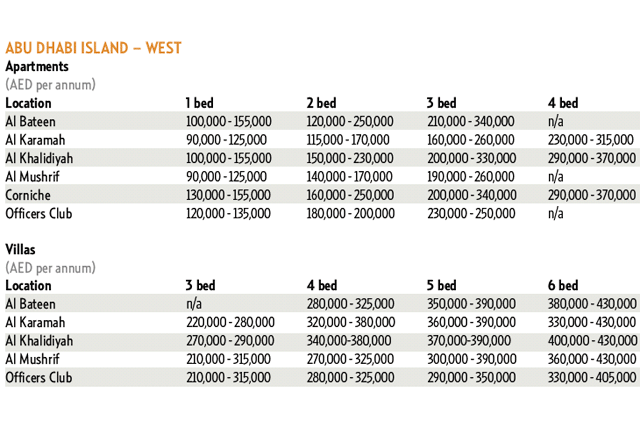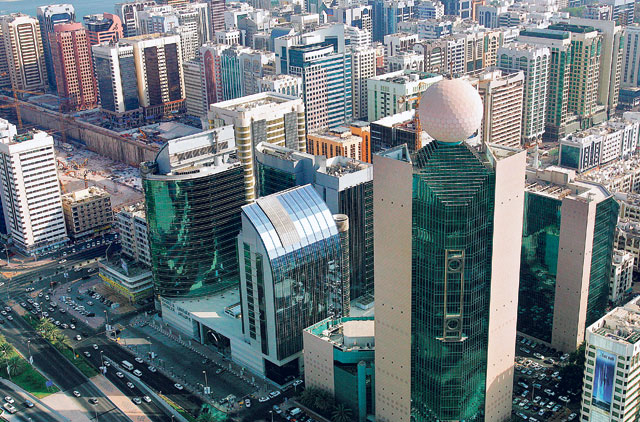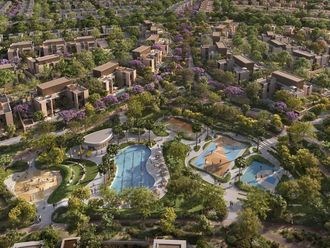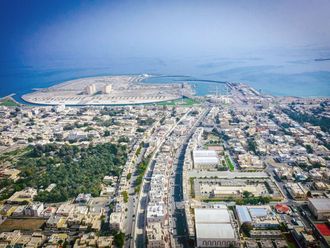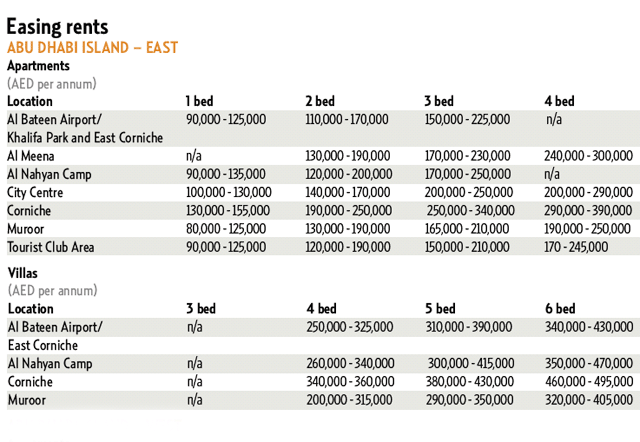
Dubai: Despite a chronic under-supply of property in Abu Dhabi, rents are on their way down.
Research from Investment Boutique and Landmark Advisory is predicting further rent decreases as the year continues.
"Over time the new rental law will help to bring down rents. However, in the short term, it isn't likely to impact this rent trajectory," reckons Jesse Downs, director of research & advisory at Landmark.
According to Landmark Advisory's latest leasing guide, rents have decreased an average of 10 to 15 per cent in the last quarter of 2009 and since declined another 5 to 10 per cent.
The percentages are relatively low but there is 26 per cent more demand than housing this year in the capital, which will fall to 12 per cent by 2012 in its metropolitan area, estimates Investment Boutique.
Stubborn rents
Potential tenants have escaped Abu Dhabi's stubbornly high rents to the more affordable Dubai, forcing Abu Dhabi's rents down as they try to keep tenants.
Steven Morgan, who oversees Cluttons' Abu Dhabi operations, believes the imbalance is not sustainable. "It shouldn't be the case that Dubai property is half the price of Abu Dhabi's."
Indeed, Investment Boutique's affordability analysis on low-end apartments for the capital establishes an oversupply in the luxury sector well into the future, while the low-mid income category is under-supplied.
For example a household in the low-medium income bracket, earning Dh190,000 per year, can afford little else but a studio at Dh40,000 rent.
The higher income bracket, earning Dh300,000 can afford up to a one-bedroom at Dh75,000, and only high-income earners can go larger than that.
Heather Wipperman Amiji, Investment Boutique's CEO points out that medium-high two and three-bedroom house seekers are looking to Dubai, which is 70 per cent cheaper than Abu Dhabi.
"We need purpose-built affordable housing," says Adel Hamaizia, Business Development Manager at RE/MAX Abu Dhabi.
Abu Dhabi developers such as Sorouh and Aldar are reacting to the news. Aldar, according to its CEO, is redesigning some of its master-plans to integrate more affordable accommodation.
Sorouh will follow suit. The company now says its balance sheet is better off increasing its share of lease property to 20 per cent over the next few years.
At the same time Sorouh is tempting buyers with a 15 per cent deposit and Dh6,500 or above monthly instalment mortgage offer.
This could work out as cheap as renting, indicating the latter needs to come down to compete.
Improving mortgage availability will inevitably increase sale volumes, especially after the buildings are handed over, says Downs.
"Once Abu Dhabi residents are able to see the units and the community, we think this will generate interest. These new developments will effectively revive the residential stock available in Abu Dhabi," she adds.
Although not in the affordable bracket Tamouh's Marina Square and Sorouh's Sun & Sky Towers, will bring thousands of people to live on Reem Island this summer.
According to ThreeSixty, Tamouh's estate management arm, many owners will rent due to the unfavourable sales environment.
Rental values
These units on the Abu Dhabi island will only ease rental values slightly, says Hamaizia.
He adds that demand will escalate in the future as the capital is creating a lot of new jobs.
He compares Al Reem Island to Dubai's JLT. "Great buildings and facilities, though movers need to brave the construction surroundings but brag about being the first."
Downs says that tenants will fork out less rent for new developments still in a construction site.
However Marina Square could be an exception as it is a self-contained community close to the main island.
So while rents at first could be subdued until the community is lived in and, based on Dubai's experience, at least 60 per cent occupied, newcomers are more likely to keep rents down.
"Eventually a premium will develop post-handover for those new high quality developments," says Down.


